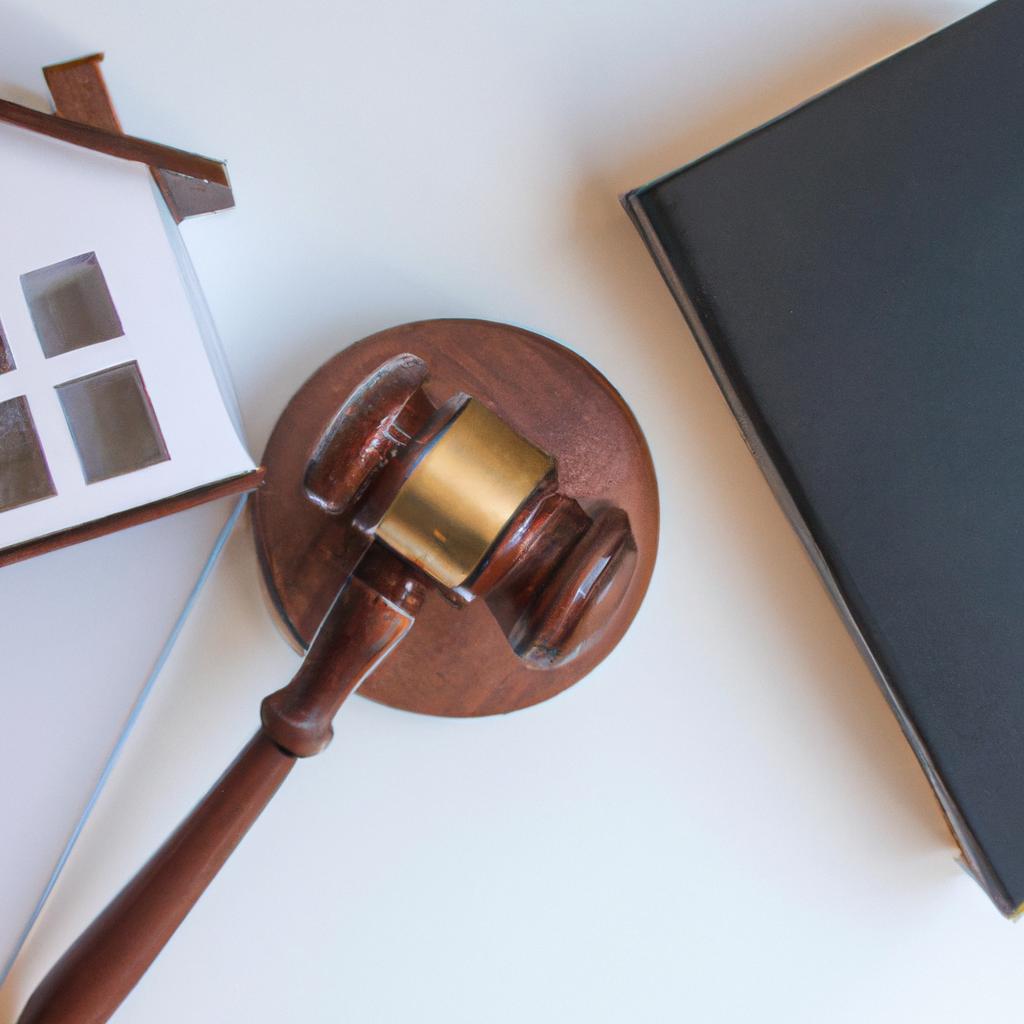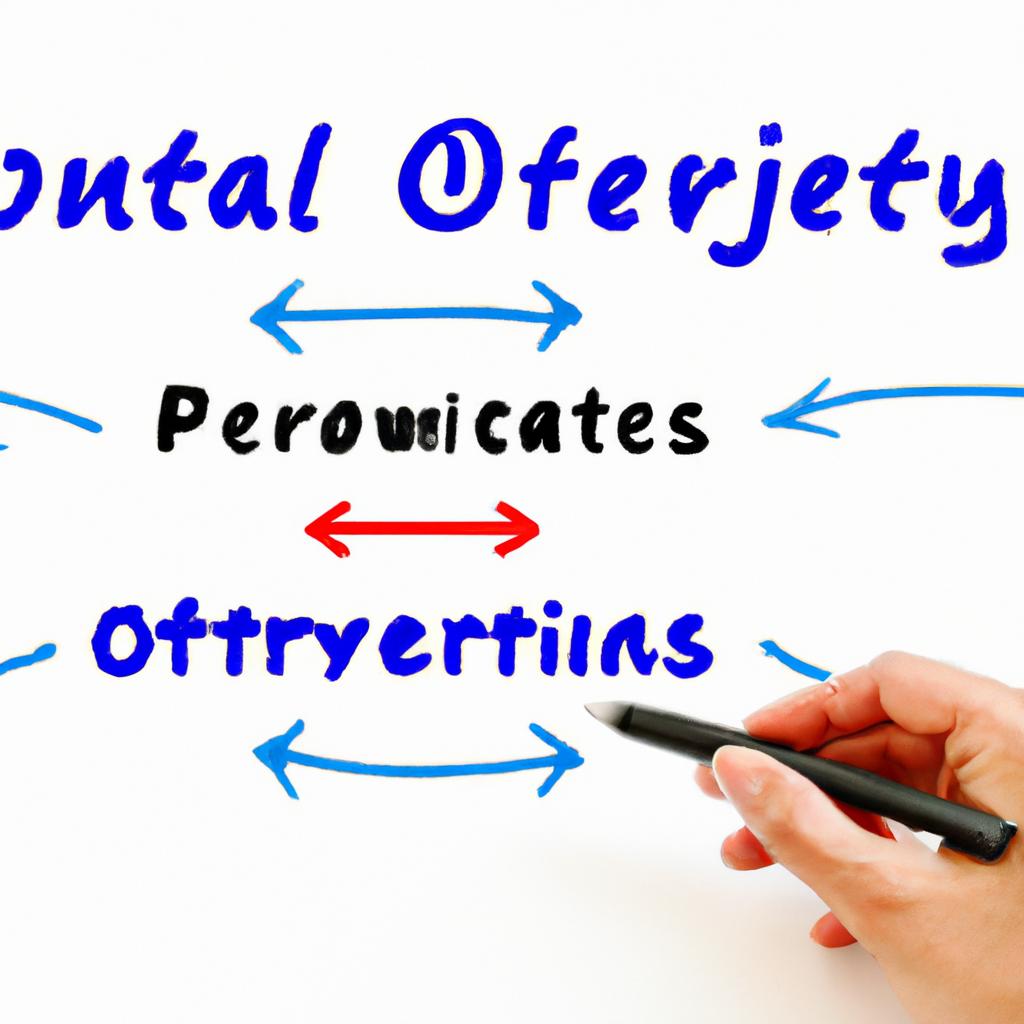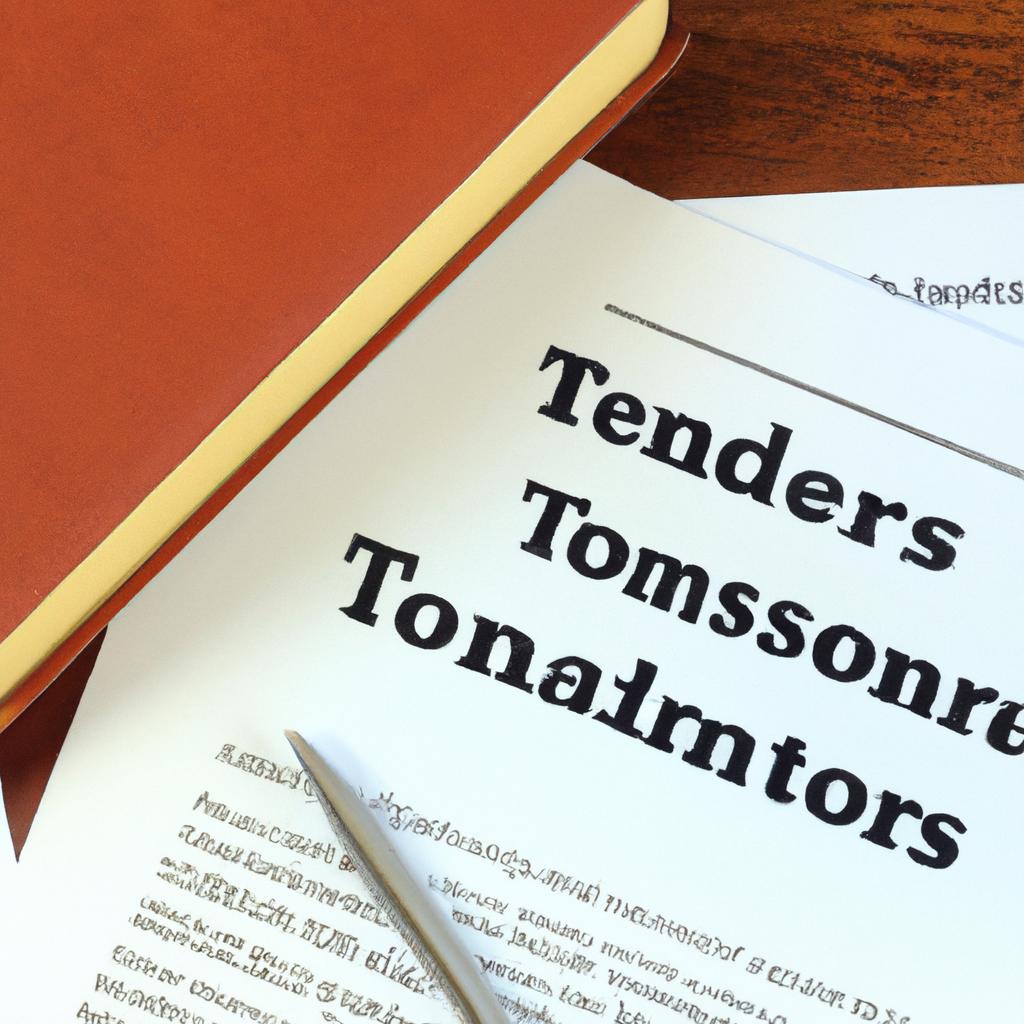In the intricate realm of property ownership, the question of who holds the deed to a house often serves as a pivotal point of contention and confusion. As seasoned legal practitioners at Morgan Legal Group in New York City, we routinely encounter clients grappling with the intricacies of deed ownership. In this article, we aim to shed light on the intricacies of this nuanced topic, providing clarity on the legal principles and responsibilities that govern the transfer and retention of property deeds. Let us navigate the labyrinthine landscape of deed ownership together, delve into the complexities of property law, and arm you with the knowledge necessary to traverse this legal terrain with confidence and competence.
Understanding the Legal Concept of Property Ownership in Real Estate
Property ownership in real estate is a complex legal concept that often involves various parties. One key document that determines the rightful owner of a house is the deed. The deed is a legal document that transfers the ownership of a property from one party to another and is typically recorded in public records.
When it comes to who holds the deed to a house, it is important to understand that the deed holder is the legal owner of the property. The deed holder has the right to do various things with the property, such as sell it, rent it out, or make improvements. It is crucial for individuals to ensure that the deed to their house is properly transferred and recorded to avoid any potential disputes or complications in the future.

Identifying the Different Types of Deeds and Their Implications
There are several types of deeds that can be used to transfer ownership of a property, each with its own implications and legal requirements. It’s important to understand the differences between these deeds in order to ensure that the transfer of property is valid and legally binding. Some of the most common types of deeds include:
- General Warranty Deed: This type of deed provides the highest level of protection for the buyer, as the seller guarantees that they have clear title to the property and will defend against any claims to the title.
- Special Warranty Deed: With this type of deed, the seller only guarantees that they have not done anything to harm the title during their ownership of the property. It provides less protection for the buyer than a general warranty deed.
- Quitclaim Deed: This type of deed transfers whatever interest the seller has in the property, without making any guarantees about the title. It is often used in situations where the buyer and seller have a close relationship.
In order to determine who holds the deed to a house, it is important to look at the title documents for the property. These documents will show the current owner of the property and should include information about the type of deed that was used to transfer ownership. If you are unsure about who holds the deed to a particular property, it is always best to consult with a qualified real estate attorney who can help you navigate the legal complexities of property ownership.

Examining How Joint Ownership Affects Property Rights
When it comes to joint ownership of a property, it is crucial to understand how it affects property rights, including who holds the deed to the house. Joint ownership can take various forms, such as joint tenancy, tenancy in common, or as tenants by the entirety. Each type of joint ownership comes with its own set of rights and responsibilities that must be carefully considered.
In joint tenancy, for example, all owners have an equal share in the property and the right of survivorship, meaning that if one owner passes away, their share automatically transfers to the remaining owners. On the other hand, tenancy in common allows for unequal ownership shares and does not include the right of survivorship. As for tenants by the entirety, this form of joint ownership is typically reserved for married couples and offers certain protections against creditors. Understanding the implications of each type of joint ownership is essential for ensuring that property rights are clearly defined and protected.

Navigating the Process of Transferring Deeds and Updating Ownership Records
In the intricate world of real estate, the question of “who holds deed to house” is a crucial one that requires careful examination and consideration. Transferring deeds and updating ownership records can be a complex process that involves various legal steps and requirements. It is essential to understand the intricacies of this process to ensure that the transfer of property ownership is done correctly and legally.
When it comes to transferring deeds and updating ownership records, there are several key factors to consider. These include:
- Legal Requirements: Ensure that all legal requirements for transferring property ownership are met, including properly executing the deed and complying with state laws.
- Document Preparation: Prepare all necessary documents, such as the deed, transfer tax forms, and any other required paperwork.
- Title Search: Conduct a thorough title search to ensure that there are no liens or other issues that could affect the transfer of ownership.
Q&A
Q: Who typically holds the deed to a house?
A: The individual or individuals listed on the deed as the property owners hold legal ownership of the house.
Q: How can I find out who holds the deed to a house?
A: You can typically find this information by searching property records at the county clerk’s office or online through a property search database.
Q: Can the holder of the deed be different from the mortgage holder?
A: Yes, the holder of the deed (the property owner) can be different from the mortgage holder (the lender who provided the loan to purchase the house).
Q: What rights does the holder of the deed have?
A: The holder of the deed has the legal right to possess, use, and transfer the property as they see fit, within the bounds of zoning laws and any restrictions outlined in the deed.
Q: What happens if there is a dispute over who holds the deed to a house?
A: Disputes over ownership of a property can be resolved through legal action in court, where evidence such as the deed and property records will be used to determine rightful ownership.
To Conclude
In conclusion, determining who holds the deed to a house is an essential aspect of homeownership. Knowing who has legal ownership of the property is crucial for various reasons, including establishing rights, responsibilities, and obligations. By understanding the complexities of property ownership and the importance of verifying the deed holder, homeowners can ensure their investment is protected and secure. Remember, the deed is not just a piece of paper – it’s a symbol of ownership and a gateway to your home sweet home. So, make sure you know who holds the key to your house, because in the end, it’s not just a house, it’s your refuge, your sanctuary, and your place to call home.
 Who Holds the Deed to Your House: An In-Depth Guide
Who Holds the Deed to Your House: An In-Depth Guide
Buying a house is a significant milestone for most individuals. It’s a major investment that requires careful planning and consideration. When purchasing a property, one of the essential documents you need to secure is the deed to the house. But who actually holds this important legal document?
In this comprehensive guide, we’ll delve into the concept of house deeds, the parties involved, and everything you need to know about who holds the deed to your house. We’ll also provide practical tips and advice to help you navigate through this complex process and understand the role of each party involved. Let’s get started!
What is a House Deed?
A house deed, also known as a property deed, is a legal document that transfers ownership of a property from one party to another. It includes details about the property, such as its boundaries, dimensions, and location. It also contains the names of the previous and current property owners, the date of the transfer, and a legal description of the property.
Types of House Deeds
There are three main types of house deeds, each with different levels of ownership and protection. These include:
1. General Warranty Deed: This is the highest level of protection for a property owner. It guarantees that the title to the property is clear and free of any liens or encumbrances.
2. Special Warranty Deed: This type of deed also provides protection but only covers the time that the seller owned the property. It does not protect against any previous or unknown issues with the title.
3. Quitclaim Deed: A quitclaim deed offers the least amount of protection to a property owner. It only transfers the ownership interest of the seller without any guarantees about the title’s validity.
Who Holds the Deed to Your House?
The person or entity listed on the deed as the owner holds the deed to your house. This is usually the property owner or the property owner’s lender if there is a mortgage. The original deed to the house is typically held in a safe and secure place, such as a safe deposit box or a lawyer’s office. The property owner or lender may also have a copy of the deed for their records.
Understanding the Parties Involved
When it comes to house deeds, there are three main parties involved:
1. Grantor: The grantor is the person who currently holds the property. They are the ones transferring the property’s ownership to a new owner.
2. Grantee: The grantee is the person or entity who is receiving the property’s ownership from the grantor.
3. County Recorder: The county recorder is the government official responsible for recording the deed in the public records to make it official and legally binding.
How to Transfer a House Deed
Transferring a house deed involves several steps and requires the involvement of all the parties mentioned above. Here’s a breakdown of what happens during the transfer process:
1. Prepare the Deed: The grantor or their legal representative prepares the deed and includes all necessary information, such as the legal description of the property and the names of the grantor and grantee.
2. Sign the Deed: The grantor must sign the deed in the presence of a notary public, who will then notarize the deed to make it official.
3. Record the Deed: The signed and notarized deed is then taken to the county recorder’s office to be recorded in the public records. This step makes the transfer official and legally binding.
4. Notify the Lender: If there is a mortgage on the property, the grantor must notify the lender of the transfer and provide a copy of the deed. The lender may also request that the new owner assumes the mortgage.
Benefits of Holding the Deed to Your House
Being the holder of the house deed comes with several benefits, including:
1. Legal Ownership: As the deed holder, you have legal proof of ownership of the property, which can be useful in disputes or legal matters.
2. Selling Your Property: If you decide to sell your property, having the deed in your possession can make the process much smoother and faster.
Practical Tips and Advice
When dealing with house deeds, it’s essential to keep the following tips in mind:
1. Keep the Deed Safe: The original deed is an essential document that proves ownership of the property. It’s crucial to keep it in a safe and secure place and protect it from any damage or loss.
2. Know Your Deed: As a property owner, you should be aware of the type of deed you hold and its implications. It’s best to consult with a real estate lawyer to fully understand your rights and level of protection.
Case Study: John and Sarah-Smith
John and Sarah-Smith recently bought a house in a suburban neighborhood. They were given a general warranty deed, providing them with the highest level of protection. A few months after moving in, they discovered that their property was under an easement, restricting them from building a fence. Thanks to their general warranty deed, they were able to resolve the issue with the previous owners and have the easement removed. This case highlights the importance of understanding the type of deed you hold and its implications.
Conclusion
In conclusion, the deed holder is the owner of the property, and the deed is a crucial legal document that proves ownership and protects the property owner’s rights. When dealing with house deeds, it’s best to consult with a real estate lawyer to fully understand your rights and level of protection. Remember to keep your deed safe and protected, and always know the type of deed you hold. With this guide, you now have a better understanding of who holds the deed to your house and its significance.

